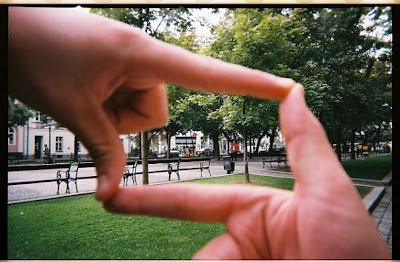Tento moj prispevok som pisal do skoly a dostal som z neho urcite ocenenia. Chcem sa svami on podelit. Prepacte ze je v anglictine.
Cela esej je pisna na dva pripady vo svete ktore sa stali prvy je priprad Bei Bei Shuai z USA http://www.guardian.co.uk/world/2011/apr/15/woman-attempted-suicide-pregnant-accused tu je rozpracovany strucne a druhy je pripad Dachner z Nemecka ten ej rozpracovany tu http://www.wsws.org/articles/2004/dec2004/tort-d13.shtml . Tieto dva clanky vam daju predstavu ocom som pisal. Na vase reakcie som zvedavy a budem sa nane tesit.
The case of Bei Bei Shuai is typical case where principles of morality and legality collide.
On one side we have morality, civil rights and women’s rights against strict legal position of state
in this situation. Should be government prosecute citizens without any regard on morality? Or
should the government officials as prosecutors, policeman and judges respect law and morality at
the same time?
Intention of Bei Bei Shuai was not deprivation of life of her unborn daughter. Instead she
tried to commit suicide as result of her trauma. In the past suicide was considered as moral and
legal wrong. In United Kingdom was suicide criminal act until 1961. However now in more
liberal society, most of the countries has decriminalized suicide as legal wrong. In light of this we
have to ask if defendant wanted to commit „only“ suicide or kill her fetus too as knowingly she
wanted to kill herself. Answer will not be easy and not very clear. Because only person that can
give us the answer is defendant. Nobody can know what was her state of mind in that moment. If
people around her helped her to get her life back on track is unforgivable if government´s
intervene in this, had bad influence on her. Her recovery could be stopped or forever undone.
Such charges are very serious and could leave marks on her personal and professional life for rest
of her life. Women has right to have abortion and commit suicide as part of basic human rights.
However such actions as action of Bei bei Shuai cannot be characterized as abortion because she
did not intentionally wanted to kill her child. Here comes in the morality that she had
responsibility of leaving her child live. She did overlook this and in moral and legal point of view
she is guilty of not caring over her unborn daughter.
Did the government made harsh decision when it charged Bei Bei Shuai with foeticide
and murder? Government has gotten its powers from citizens. Government uses this powers to
maintain peace, order and precede crime. However these powers have limitations.
State´s officials are bounded by law. Mostly by doctrine of legal positivism which means
that they have to only use law nothing else in their decision making either morality or ethics.
Prosecutor has duty to prosecute all offences. In Bei Bei Shuai case if prosecution would drop
the charges it would lead to embracement of morality on one side but decline of legality on other
side. Defendant cannot hope even for judge that would felt compassion for her. He as well is
bounded by law. In American system is used precedent, so decision making will be influenced
by this. Only thing that is on her side is jury. She can explain to lay citizens why she tried to kill
herself etc. In my opinion the jury is the moral and ethical balancer in this whole process. So
the government´s decision has not been harsh because system has the balance of morality and
According to our Slovakian law the foeticide and murder are felonies. Which are
punishable by imprisonment over 5 years up to life sentence. In continental system of law where
Slovak republic certainly belong, we have same participants in criminal proceedings as US but
with one exception. That is absents of jury. We can say in our judicial system the moral balancer
is absent. Per contra in itself the system has to have moral implications in it. The police and
prosecution still have to work as strict law enforcers. However judges have different role, they
are not bounded by decisions from precedent. The decision is up to them. They combine the
legality and morality in one person. Judges are at the same time bounded by law and on other
hand morals and ethics. They do not have to decide on only on matters of fact but even on
matters of law at the same time. This role to fulfill is extremely difficult and only few candidates
meet the expectations. This role is one of the hardest roles in modern society and not everybody
is fit for it. Such perfect role has shown the judge in the case of Daschners case is very good
example of this. Daschner has broken the law by torturing the subject but his motive was pure
moral, he wanted to save a human being. Judge saw this and sentenced him only to monetary
retribution 10,800 €. When he could enforce punishment of imprisonment on him. Judge has
Have I come to conclusion? Yes, the government should never enforce the law to hurt
their citizens but it should not ever forget to look on the case from every point of view. Strict law
abounding could leave the system that protects people in position when are people afraid of it and
are forced to live on battlefield of law and morality. And chose if they do something right
according to law or according their belief. On other hand government cannot overlook crimes
which appear morally unjustified. Such government would not be respected by their citizens,
which would abuse this system. Citizens that really acted wrongfully would defend them self by
government has to have a system that can provide strict legality and certainty but on the same
side provide the minimum morality in its decision. Law should not be stable entity. It should
have changed along with society and humans as well.









